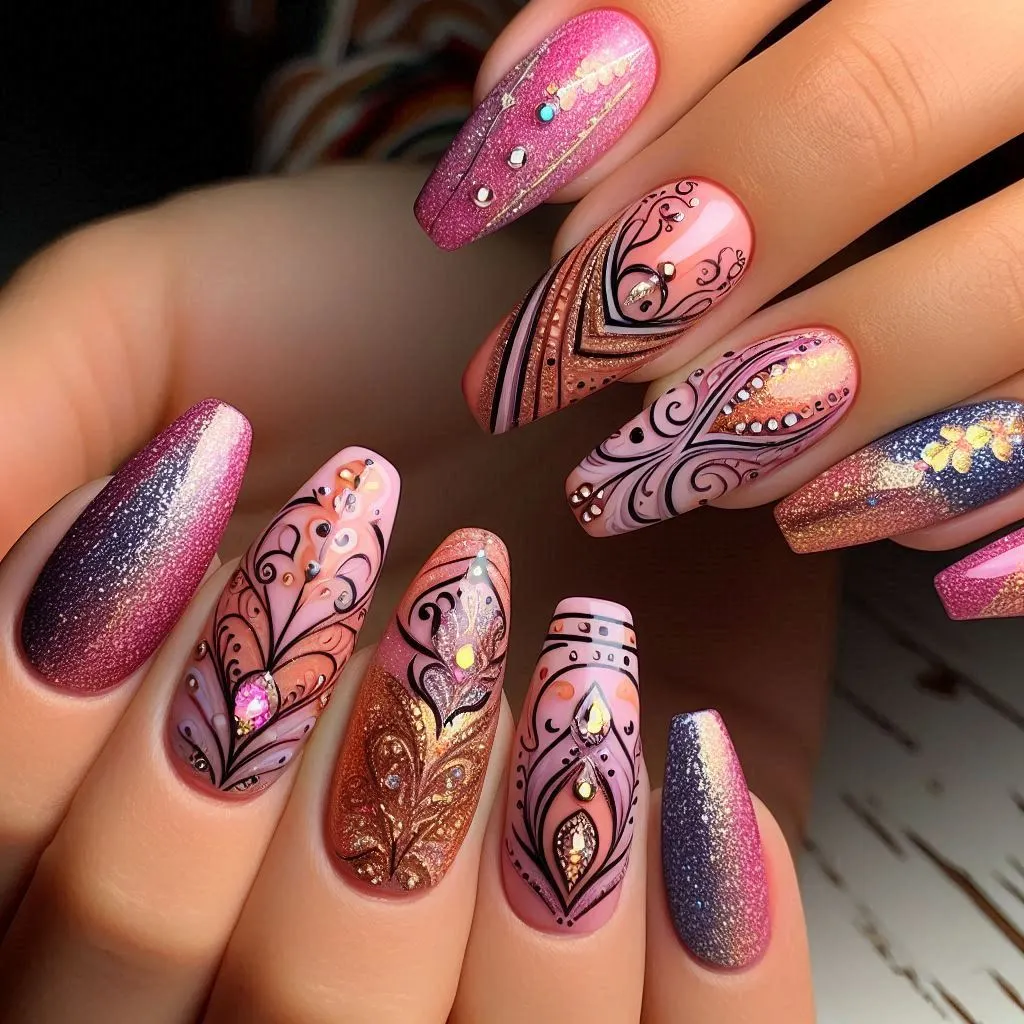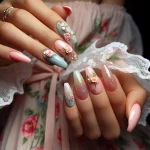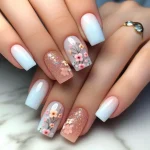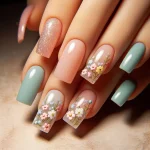- Top 10 Celsius Drink: The Ultimate 2025 Guide - 08/07/2025
- Prime Drink Comprehensive Deep Dive 2025 (10K+ word) - 08/05/2025
- Top Alani Energy Drink: 2025 Deep Dive(10K+ word) - 08/04/2025
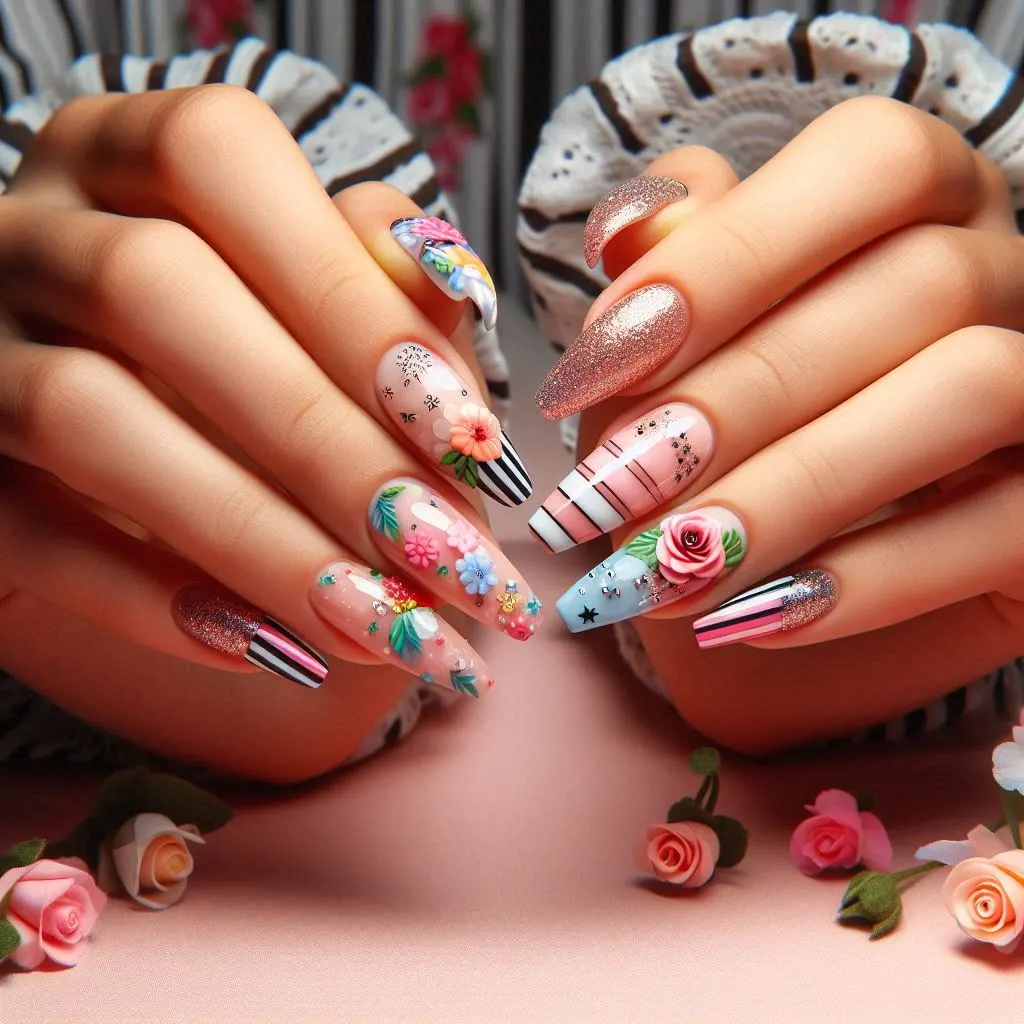
Table of Contents
How to Remove Gel Nails Safely at Home
Gel nails are a stylish and durable manicure option, but removing them improperly can lead to damage and weakened nails. With a little preparation and patience, you can safely remove gel nails at home without a trip to the salon. Here’s a comprehensive, step-by-step guide to ensure your nails stay healthy throughout the process.
What You’ll Need
To remove gel nails effectively, gather the following items:
- Acetone (preferably 100% pure)
- Cotton balls or pads
- Aluminum foil (cut into small strips)
- Nail file (coarse and fine grit)
- Cuticle pusher or orangewood stick
- Bowl of warm water (optional)
- Petroleum jelly or hand lotion
- Cuticle oil or a moisturizing cream
Step 1: File the Surface of the Gel Polish
Start by gently filing the top layer of your gel nails using a coarse nail file. This step removes the shiny topcoat, allowing the acetone to penetrate the layers underneath. Be careful not to file too much—just enough to break the seal. Over-filing can damage your natural nails.
Step 2: Protect Your Skin
Acetone can be harsh on your skin and cuticles, causing dryness or irritation. Before soaking your nails, apply a thin layer of petroleum jelly or hand lotion around the cuticle area. This creates a barrier to protect the surrounding skin.
Step 3: Soak Cotton Balls in Acetone
Soak cotton balls or pads in acetone until fully saturated. Using 100% acetone will speed up the process, but if it’s unavailable, a nail polish remover containing acetone will work, though it may take longer.
Step 4: Wrap Your Nails
Place the acetone-soaked cotton ball over your nail and wrap it tightly with a strip of aluminum foil. Ensure the foil is secure to trap heat and moisture, helping the acetone dissolve the gel polish more efficiently. Repeat this for all ten nails.
Step 5: Let It Sit
Allow the wraps to sit for 10-15 minutes. The gel polish will soften as the acetone breaks it down. If you prefer not to use foil, you can soak your fingertips in a bowl of acetone, but this method exposes more of your skin to the drying effects of acetone.
Step 6: Check the Progress
After 15 minutes, remove one foil wrap and gently scrape the gel polish with a cuticle pusher or orangewood stick. The gel should come off easily. If it doesn’t, reapply the acetone-soaked cotton and foil, and let it sit for another 5-10 minutes.
Step 7: Remove Residual Gel Polish
Once all the gel polish has softened, carefully scrape off the remaining product. Be gentle to avoid damaging the natural nail underneath. A soft wooden or silicone tool is best for this step.
Step 8: Buff and Smooth
After removing all traces of gel polish, use a fine-grit nail buffer to smooth the surface of your nails. This removes any residue and leaves your nails looking clean and natural.
Step 9: Rehydrate Your Nails and Skin
Acetone can dry out your nails and skin, so rehydration is key. Wash your hands thoroughly to remove any acetone residue, then apply a generous amount of cuticle oil or a hydrating hand cream. Massage the oil into your nails and cuticles to restore moisture.
Tips for Minimizing Nail Damage
- Don’t Rush: Rushing the process can lead to peeling and damage. Be patient and let the acetone do the work.
- Avoid Scraping Too Hard: Use gentle pressure when removing gel polish to protect your natural nails.
- Take Breaks Between Gel Manicures: Allow your nails time to recover by taking breaks from gel polish.
- Consider Professional Help: If your gel polish is particularly stubborn or your nails are damaged, seek help from a salon to prevent further harm.
Alternative Removal Methods
If acetone isn’t an option, consider these alternatives:
- Nail Polish Remover with Acetone: This works similarly but may take longer.
- Nail Wrap Removers: Pre-soaked wraps designed for gel polish removal can be a convenient option.
- Soak-Off Gel Steamers: These tools use heat and steam to soften gel polish for easy removal, with less exposure to acetone.
When to See a Professional
If your gel nails are difficult to remove, or if you notice any signs of nail damage, it’s best to visit a nail technician. They have the tools and expertise to remove gel polish safely without compromising the health of your nails.
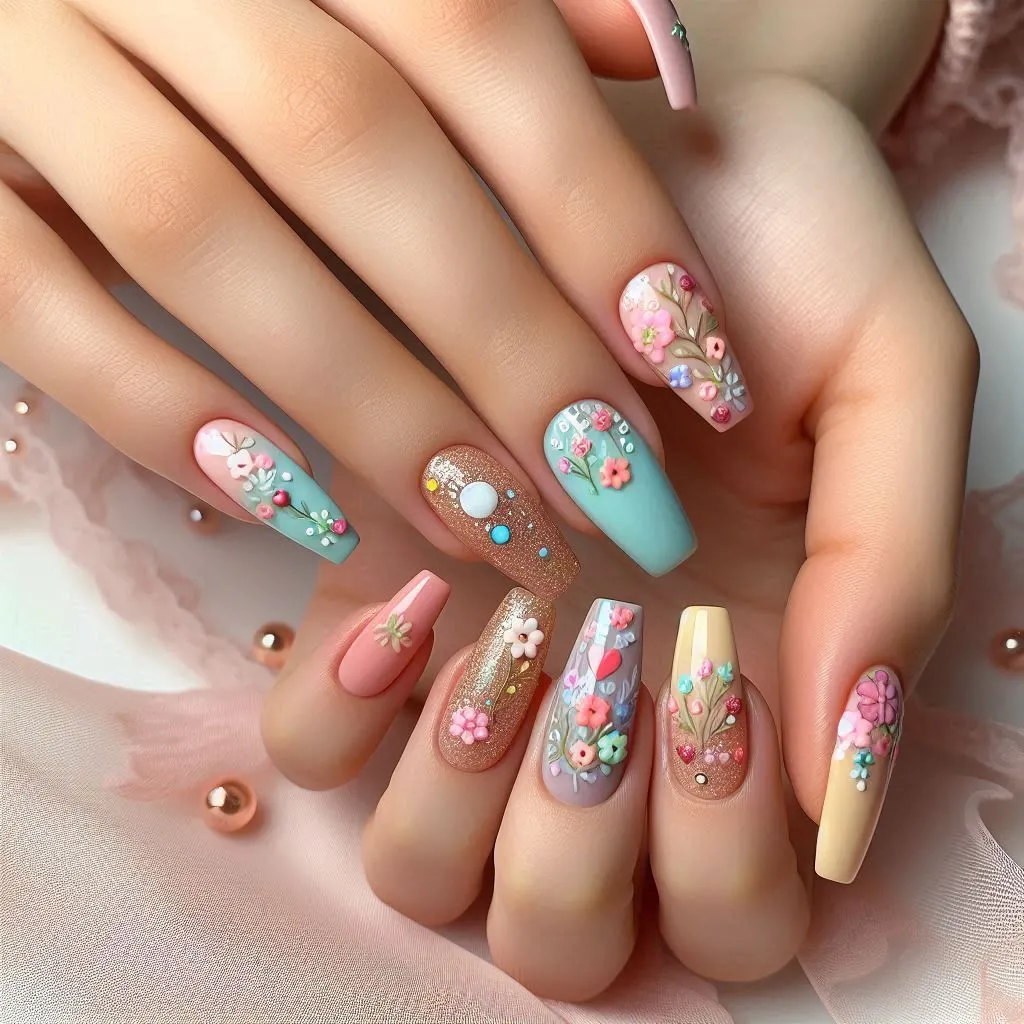

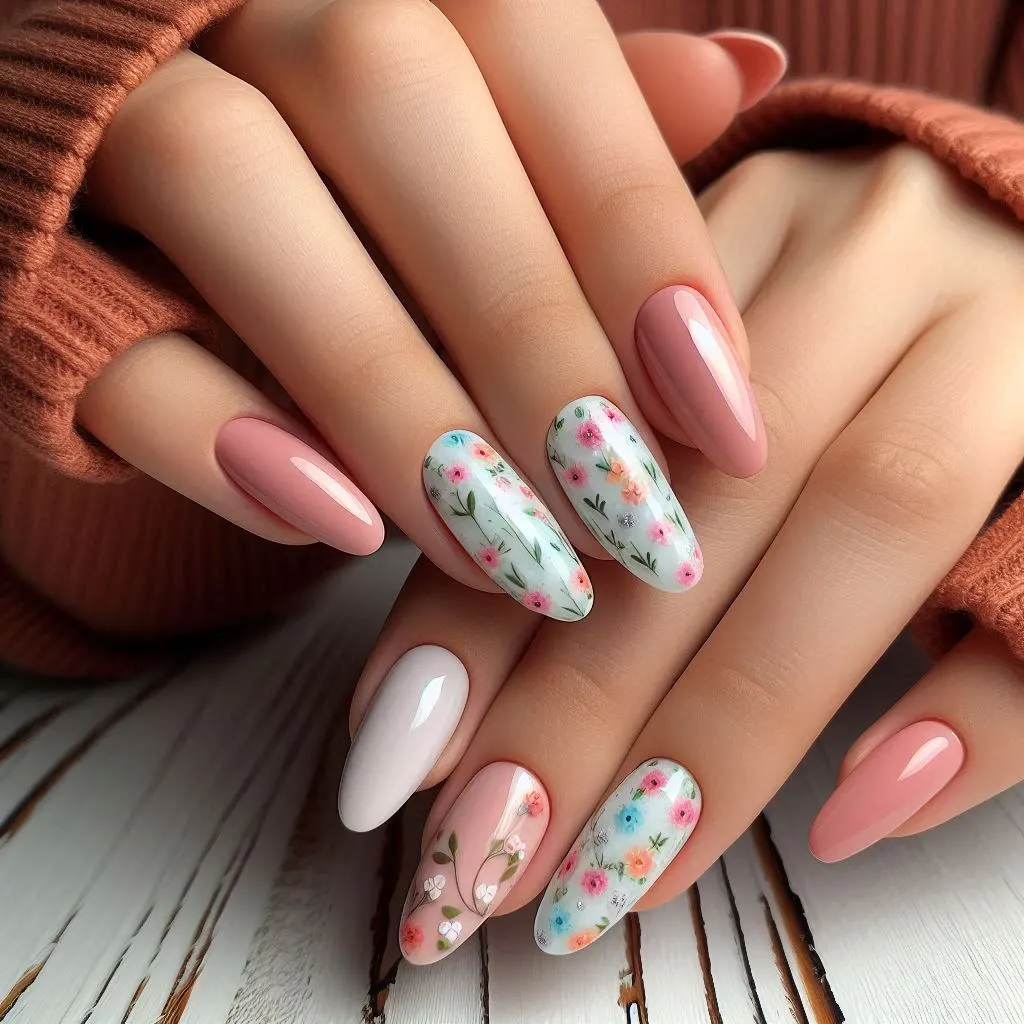
Removing gel nails at home can be a straightforward and safe process if done correctly. By following this step-by-step guide, you can protect the health of your natural nails while enjoying the flexibility of at-home care. With a little patience and the right tools, you’ll have clean, polished nails ready for your next manicure.
Toy Poodle: The Perfect Petite Companion – love a happy home (loveahh.com)
- Best Perfume for Women Top Picks for Every Style 2025
- Amazon Best Sellers in Skin Care Products Top 10 2025
- Perfume: Everything You Need to Know 2025
- Burberry Her Perfume: A Deep Dive 2025
- Ariana Grande Perfume: A Complete Guide 2025
- YSL Perfume: A Legacy of Luxury and Elegance 2025
- Sol de Janeiro Perfume: A Luxurious Fragrance 2025
- Billie Eilish Perfume 2025 In-Depth Guide
- Delina Perfume: A Comprehensive Guide 2025
- Kayali Perfume 2025 In-Depth Guide
- Miss Dior Perfume 2025 In-Depth Guide
- Valentino Perfume 2025 In-Depth Guide
- How to Increase Charisma: Women’s Edition 2025
- Amber: That Captivates the World 2025
- What Color Is Amber 2025?
- Makeup Looks: 2025 Finding Your Unique Style
- Polygel Nails: 2025 Nail Revolution
- Mouse Pretty Makeup 2025 In-Depth Guide
- Builder Gel Nails: 2025 Perfect, Long-Lasting Nails
- Trendy Short Gel Nails: 2025 Style Meets Practicality
- Makeup Bag: 2025 Your Beauty Companion
- Wedding Makeup Looks 2025 In-Depth Guide
- Christmas Makeup Looks: 2024 Glamorous Ideas
- 80s Makeup Looks 2025 In-Depth Guide
- 100 Cute Makeup Looks 2025 In-Depth Guide
- Natural Makeup Looks: 2025 Enhance Your Natural Beauty
- How to Remove Gel Nails Safely at Home
- Ombre Nails: 2024 Gorgeous Manicure Trend
- Autumn Nails Trends: Best Fall Nails
- Cute Fall Nails: Trendy Nail Ideas
- Fall Nails 2024: Trendy Colors, Designs, and Styles
- Summer Nails 2024: Top Trends
- 10 Cute Acrylic Nails Ideas to Elevate Your Look
- Beauty of Square Short Acrylic Nails: A Practical Guide
- Square Short Acrylic Nails: Stylish and Practical
- Cute Short Acrylic Nails Ideas: Trendy Look
- Cute Short Acrylic Nails: Perfect Look
- Best Short Acrylic Nails Ideas(15 Types)
- Trendy Short Acrylic Nails Ideas(13 Types)
- Short Acrylic Nails: Perfect Style with Practicality
- Short Acrylic Nails: Stylish, Durable, and Practical
- Acrylic Nails Ideas: 10 Trendy Designs
- How to Remove Acrylic Nails(1 In-Depth Guide)
- French Tip Nails 2025 In-Depth Guide
- French Tip Nails: A Timeless Style with a Modern Twist
- How to Achieve the Perfect Glazed Donut Nails
Amazon Best Sellers in Skin Care Products: Top 10 Must-Have Picks for Your Beauty Routine 2025
Introduction
We all want that healthy glow, but let's be real - the skincare aisle is overwhelming! Whether you're battling breakouts, dry patches, wrinkles, or irritation, finding products that actually work is half the battle.
Here's why Amazon's top sellers are a safe bet:
- They've been put to the test by real people (not just fancy marketing)
- The ingredients lists actually make sense
- These formulas deliver real results you can see
The best part? Thousands of honest reviews help cut through the hype so you can shop smarter.
We're going beyond the basics to give you:
→ The star ingredients and why they matter
→ Simple tips to get the best results
→ Exactly who it works for (and who should skip it)
→ Real people's honest experiences
Ready to find your new skincare MVPs? Let's check out Amazon's top 10!
1. Mighty Patch™ Original Patch by Hero Cosmetics
Overview
The Mighty Patch™ Original Patch by Hero Cosmetics is a hydrocolloid acne patch that effectively treats pimples and breakouts overnight. These patches work by absorbing pus, oil, and impurities, accelerating the healing process and reducing inflammation. Unlike spot treatments that can be drying, Mighty Patch™ provides a non-drying, gentle solution for acne-prone skin.
Key Ingredients & Benefits
✔️ Hydrocolloid Technology – Absorbs excess fluids, reducing swelling and redness.
✔️ Non-Irritating Formula – Free from harsh chemicals, making it suitable for sensitive skin.
✔️ Invisible and Comfortable – Can be worn during the day or overnight.
How to Use
- Cleanse and dry the affected area before applying.
- Stick the patch directly onto the pimple.
- Leave it on for at least 6 hours (preferably overnight).
- Remove and replace if needed.
Who Should Use It?
✔️ Anyone struggling with occasional breakouts or acne
✔️ People who pick at their pimples and want a protective barrier
✔️ Those looking for a gentle, non-drying acne solution
Customer Reviews & Feedback
⭐ 4.5/5 stars with over 100,000 reviews
💬 “These patches work like magic! I wake up with my pimples noticeably smaller and less inflamed.”
2. Medicube Zero Pore Pads 2.0
Overview
The Medicube Zero Pore Pads 2.0 are dual-textured exfoliating toner pads that help reduce blackheads, minimize pores, and remove dead skin cells. Infused with a blend of AHA and BHA, these pads gently exfoliate the skin while controlling excess oil and promoting a smooth complexion.
Key Ingredients & Benefits
✔️ AHA (Lactic Acid) - 4.5% – Exfoliates dead skin cells for a smoother texture.
✔️ BHA (Salicylic Acid) - 0.45% – Unclogs pores and prevents breakouts.
✔️ Centella Asiatica Extract – Soothes inflammation and irritation.
How to Use
- Use the textured side to exfoliate and remove dead skin cells.
- Flip to the smooth side to refine and hydrate the skin.
- Follow with a moisturizer to lock in hydration.
Who Should Use It?
✔️ People with oily and acne-prone skin
✔️ Those dealing with large pores and rough texture
✔️ Anyone looking for an easy exfoliating step in their routine
Customer Reviews & Feedback
⭐ 4.7/5 stars with 10,000+ reviews
💬 “These pads keep my skin smooth and clear without over-drying!”
3. Clean Skin Club Clean Towels XL™
Overview
Unlike regular washcloths that can trap bacteria, the Clean Skin Club Clean Towels XL™ are disposable, biodegradable face towels designed for a hygienic and irritation-free cleanse. These towels are ideal for sensitive skin, acne-prone individuals, and makeup removal.
Key Benefits
✔️ Ultra-soft and durable material
✔️ Eco-friendly and biodegradable
✔️ Prevents bacteria buildup
How to Use
- Use a towel with your favorite cleanser for a deep cleanse.
- Pat your face dry after rinsing.
- Dispose of the towel after use.
Who Should Use It?
✔️ People with acne-prone or sensitive skin
✔️ Anyone looking for a cleaner, more hygienic skincare routine
Customer Reviews & Feedback
⭐ 4.8/5 stars with 5,000+ reviews
💬 “I no longer have breakouts from dirty towels! These are a game changer.”
4. BIODANCE Bio-Collagen Real Deep Mask
Overview
This overnight hydrogel mask delivers intense hydration, improving skin elasticity and minimizing pores. It’s formulated with bio-collagen, which helps plump and rejuvenate the skin overnight.
Key Ingredients & Benefits
✔️ Hydrogel Technology – Enhances skin absorption.
✔️ Bio-Collagen – Improves skin elasticity.
✔️ Hyaluronic Acid – Boosts moisture retention.
How to Use
- Apply the mask before bedtime.
- Leave it on overnight and rinse in the morning.
Who Should Use It?
✔️ Anyone looking for an anti-aging treatment
✔️ Those with dry or dull skin
Customer Reviews & Feedback
⭐ 4.6/5 stars with 2,000+ reviews
💬 “My skin feels so hydrated and plump in the morning!”
5. Grace & Stella Under Eye Mask
Overview
The Grace & Stella Under Eye Mask is a luxurious self-care essential that helps reduce dark circles, puffiness, and fine lines. These gold hydrogel patches deliver intense hydration and rejuvenation to the delicate under-eye area.
Key Ingredients & Benefits
✔️ Hyaluronic Acid – Hydrates and plumps the under-eye skin.
✔️ Collagen – Improves skin elasticity and firmness.
✔️ Glycerin – Retains moisture and smooths fine lines.
How to Use
- Cleanse your face and pat dry.
- Apply a pair of under-eye patches and leave on for 15-20 minutes.
- Remove and gently tap the remaining essence into the skin.
Who Should Use It?
✔️ Anyone struggling with tired, puffy eyes
✔️ Those looking to brighten and hydrate their under-eye area
Customer Reviews & Feedback
⭐ 4.5/5 stars with 8,000+ reviews
💬 “These eye masks instantly refresh my eyes. A must-have for late nights!”
6. eos Shea Better Body Lotion - Vanilla Cashmere
Overview
The eos Shea Better Body Lotion in Vanilla Cashmere is a lightweight, non-greasy moisturizer that provides 24-hour hydration. Infused with natural shea butter, this body lotion softens and nourishes the skin while leaving a warm vanilla scent.
Key Ingredients & Benefits
✔️ Shea Butter – Deeply hydrates and repairs dry skin.
✔️ Coconut Oil – Locks in moisture and adds a smooth texture.
✔️ Vitamin E – Protects the skin from environmental damage.
How to Use
- Apply generously to clean, dry skin.
- Massage until fully absorbed.
Who Should Use It?
✔️ Anyone with dry or sensitive skin
✔️ Those who love sweet, comforting scents
Customer Reviews & Feedback
⭐ 4.6/5 stars with 10,000+ reviews
💬 “The scent is heavenly! My skin stays soft all day without feeling greasy.”
7. Neutrogena Makeup Remover Wipes
Overview
The Neutrogena Makeup Remover Wipes make makeup removal quick and easy. These alcohol-free towelettes dissolve waterproof makeup, dirt, and oil without irritating the skin.
Key Ingredients & Benefits
✔️ Gentle Cleansing Formula – Safe for sensitive skin.
✔️ No Residue – Leaves skin feeling fresh and clean.
✔️ Alcohol-Free – Prevents drying and irritation.
How to Use
- Gently wipe your face, including eyes and lips.
- No need to rinse—follow with a cleanser if desired.
Who Should Use It?
✔️ People who wear waterproof makeup
✔️ Anyone looking for a convenient cleansing solution
Customer Reviews & Feedback
⭐ 4.7/5 stars with 20,000+ reviews
💬 “Removes all my makeup without stinging my eyes. A lifesaver for busy days!”
8. La Roche-Posay Toleriane Double Repair Face Moisturizer
Overview
The La Roche-Posay Toleriane Double Repair Face Moisturizer is a dermatologist-recommended, oil-free moisturizer designed for all skin types, including sensitive skin. Formulated with ceramides and niacinamide, it strengthens the skin barrier and provides 48-hour hydration.
Key Ingredients & Benefits
✔️ Ceramides – Restore the skin barrier and prevent moisture loss.
✔️ Niacinamide – Soothes redness and irritation.
✔️ Prebiotic Thermal Water – Provides antioxidant benefits.
How to Use
- Apply morning and evening after cleansing.
- Use sunscreen during the day for added protection.
Who Should Use It?
✔️ People with dry, sensitive, or acne-prone skin
✔️ Anyone looking for a fragrance-free, non-greasy moisturizer
Customer Reviews & Feedback
⭐ 4.8/5 stars with 15,000+ reviews
💬 “This is my go-to moisturizer! It hydrates my skin without causing breakouts.”
9. Medicube Collagen Jelly Cream
Overview
The Medicube Collagen Jelly Cream is a hydrating and anti-aging moisturizer that contains freeze-dried hydrolyzed collagen and niacinamide to enhance skin elasticity and moisture retention.
Key Ingredients & Benefits
✔️ Hydrolyzed Collagen – Strengthens and plumps the skin.
✔️ Niacinamide – Brightens and improves skin tone.
✔️ Peptides – Reduce fine lines and promote firmness.
How to Use
- Apply after toner and serum.
- Massage into the skin in upward motions.
Who Should Use It?
✔️ Anyone concerned about aging and sagging skin
✔️ Those looking for a lightweight yet deeply hydrating cream
Customer Reviews & Feedback
⭐ 4.6/5 stars with 7,000+ reviews
💬 “I’ve noticed a huge difference in my skin’s texture. My face looks firmer and more hydrated!”
10. Medicube Collagen Overnight Wrapping Mask
Overview
The Medicube Collagen Overnight Wrapping Mask is a leave-on, peel-off facial mask that helps improve skin elasticity, hydration, and glow while you sleep.
Key Ingredients & Benefits
✔️ Hydrolyzed Collagen – Supports skin firmness and elasticity.
✔️ Peptides – Improve skin regeneration overnight.
✔️ Centella Asiatica – Soothes and calms the skin.
How to Use
- Apply a thin layer before bed.
- Let it absorb overnight and peel off in the morning.
Who Should Use It?
✔️ People looking for an anti-aging night treatment
✔️ Those with dry or dull skin needing deep hydration
Customer Reviews & Feedback
⭐ 4.7/5 stars with 6,000+ reviews
💬 “Waking up to plump, glowing skin is the best feeling ever!”
Final Thoughts
These Amazon favorites have already passed the real test - thousands of happy users swear by them!
No matter what your skin needs:
→ Fighting breakouts
→ Quenching thirsty skin
→ Turning back time
→ Or just a fresh start
✔️...we've got the perfect picks for you.
🎯 Don’t Miss Out — These Are Reader-Favorite Bestsellers You’ll Love Too 👇
| # | 🎁 Product | 💬 Why It Converts | 🔗 Quick Action |
|---|---|---|---|
| ✅ 1 | Exploding KittensThe Wildly Popular Card Game | 🔥 100,000+ rave reviews🤣 Fun for all ages🎉 #1 party game choice | 👉 Click to Check Price |
| 😂 2 | Funny Dad T-Shirt“You Can’t Scare Me, I Have Kids” | 👕 Viral dad gift🎂 Perfect for birthdays & Father’s Day💬 Gets people laughing instantly | 👉 See It in Action |
| 🕯️ 3 | Luxury Candle Gift SetElegant 1-Wick, Spa Fragrance | 🧘♀️ Instant relaxation🎁 Beautifully boxed for gifting💡 Affordable luxury | 👉 Treat Yourself or Gift Now |
| 🔍 4 | Tile Bluetooth TrackerFind Anything in Seconds | 🛠️ Life-saving tech🧓 Great for parents, teens, travelers📱 Works with your phone | 👉 Never Lose Anything Again |
| 📘 5 | Atomic Habits by James ClearTransform Your Daily Life | 📖 20M+ readers worldwide🔑 Simple steps, big results🎓 Top self-growth book | 👉 Read What Everyone’s Talking About |
✅ Why These Items Sell:
| 💡 Trigger | Example in Table | How It Helps Conversion |
|---|---|---|
| ✅ Social Proof | “100,000+ rave reviews” | Builds trust instantly |
| 🎯 Use Case Clarity | “Great for family game night” | Reduces decision friction |
| 🚀 Action Verbs | “Click to check price” | Encourages immediate action |
| 🔥 Urgency & Emotion | “Don’t miss out” / “Treat yourself” | Triggers impulse buying |
| 🎁 Gifting Potential | “Perfect for birthdays & holidays” | Taps into universal purchase intent |
❤️ Your Click Makes a Difference
Every purchase made through these links helps support this site and keeps great content coming — Thanks!
💬 Why Tip? It’s Not Just Money — It’s Motivation ❤️
| 😊 What You Got | 🎁 What I Get | 🔗 What You Can Do |
|---|---|---|
| ✔️ A smile or laugh | ✔️ A reason to keep creating | 👉 Buy me a coffee ☕️ |
| ✔️ Useful tips, insights, or ideas | ✔️ Proof that this content helps | 👉 Click the support button 💸 |
| ✔️ Fun, relatable content | ✔️ Motivation to go deeper & better | 👉 Leave a tip + kind feedback 🙌 |
| ✔️ Ad-free reading experience | ✔️ A little financial breathing room | 👉 $1 isn’t too little, $10 isn’t too much 🎉 |
| ✔️ A sense of connection | ✔️ The joy of being seen and supported | 👉 Let me know you’re out there 👀 |
❤️ If you made it this far, maybe that’s your sign to support? Every tip matters!

